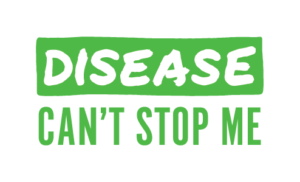Recently I read the book “The Power of Habit” by Charles Duhigg and it changed my life. There are very few books that I can say that about, but the tools and tips in this book are spectacular.
Let me set up the normal day for many of us with Chronic Illness. We wake up tired. We watch TV. We have some issues with symptoms or pain. We take a nap. We eat, and sometimes not the healthiest food. We go online. We finally go to bed.
What i described above outlines the habits of many chronic illness fighters. These are not habits that we act on every day, but every once and a while we give in to the temptation to just be lazy.
Enter “The Power of Habit”.
Fact 1
Habits are stored in your basil ganglia. The part of your brain that assists in primal functions such as movement. What studies have found is that habits become such second nature that even those people with memory loss follow natural habits. For example, one study followed a patient that lost all short term memory, yet based on old habits could take a walk around his neighborhood and still end up back in his home. The habit of taking walks was still engrained into his basil ganglia.
What it means for you?
We must become cognizant of habits that occur naturally. Only when we understand that habits are formed deep in out basil ganglia will we start to create new beneficial habits. It takes time and effort for new habits to replace old habits. Have you ever felt worn out by your illness and it leads to eating bad food and being lazy? Your mind reverts back to your primitive habits. Catch yourself, and work on resisting these bad habits.
Fact 2
Every habit starts with a trigger. A trigger can be something physical or emotional that will cause you to perform that habit. For example, for a good habit you might have a visual trigger and see your running shoes next to your bed in the morning. This causes you to start your day by sliding your feet into your shoes and taking a walk. For a bad habit, you might feel a slight sensation in your hands and notice you are bored. This causes you to start biting your finger nails.
What it means to you?
Recognize both bad and good triggers. If you have a bad habit that you want to get rid of, keep a note card with you and every time you recognize the trigger pull the card out and put a check mark. Just recognizing the trigger is a great step towards preventing the bad habit from happening.
Fact 3
All habits end with a reward. Not everyone realizes that the reason you perform a habit in the first place is to receive some sort of reward. For someone who runs everyday, they might feel a sense of confidence after their run. For someone who bights their finger nails, they get a sense of relief from boredom and success when the job is done.
What it means to you?
After you realize your trigger, make the check mark on your note card and than replace the bad habit with a new habit. For example, if you always end up taking an unnecessary nap, here are the steps to follow:
- Realize the trigger. Maybe your eyes become droopy when only 5 minutes before, you were not tired. (Note: If you are tired and need rest due to your chronic illness I am not stopping you. This example is for people who are sleeping without needing the extra rest)
- Replace the habit with another beneficial habit. For example, decide to get up and take a walk around the house.
- End with a reward. Your reward can be the confidence that you get from exercising, or it can be something simple like eating a cookie.
Fact 4
You are more susceptible to bad habits when your willpower is diminished. Have you ever noticed that after a long day at work, it is much easier to sit on a couch and eat a bag of popcorn than it is to go to the gym and workout? Every decision you make throughout the day depletes your willpower muscle.
What it means to you?
Get good habits, like going to the gym, done earlier in the day. The earlier you get good habits done, the more likely you are to completing them.
I hope these tips helped you!
What are your bad habits and what is your plan to change them?
Thanks,
Dave










